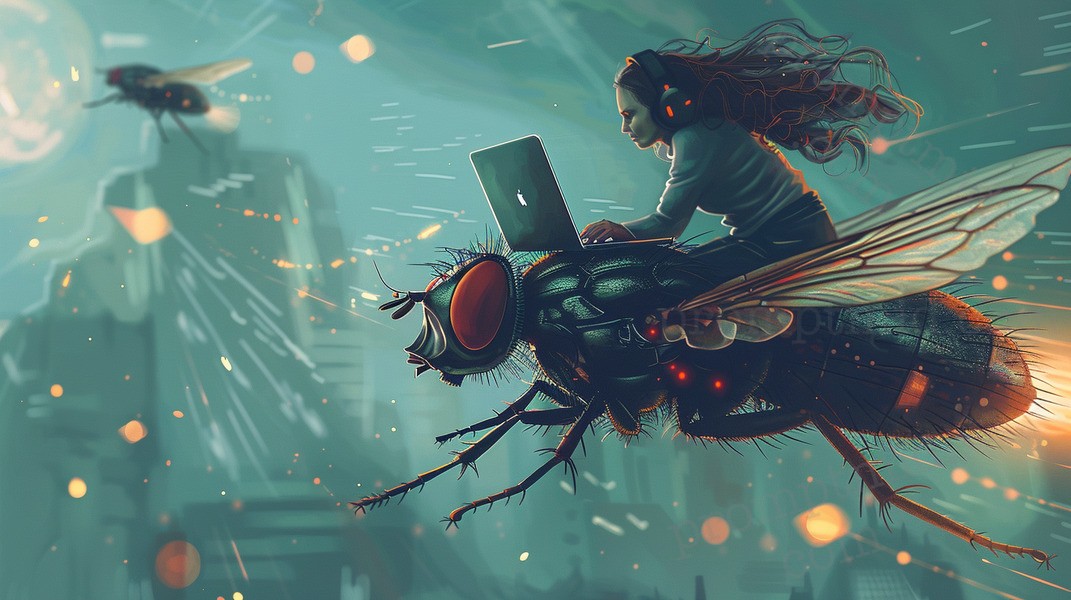Artificial Intelligence (AI) continues to transform our world, offering innovative solutions for a wide array of tasks from daily automation to revolutionary approaches in creativity and development. This article presents a curated overview of the best AI tools of 2024, helping you to unlock the potential of these technologies to enhance your work and personal projects.
From Personal Assistant to Content Generation: How AI Can Elevate Your Textual Work
ChatGPT: Your Personal Assistant for Everything
ChatGPT by OpenAI is not merely a tool for text generation; it’s an ecosystem providing users with unprecedented capabilities. It can act as a personal assistant, helping to organize your daily life, schedule meetings, and remind you of important events. In the realm of textual work, ChatGPT automates content creation from simple email responses to complex technical reports and marketing materials. With its ability to generate images, ChatGPT opens new horizons for creativity, enabling the creation of unique visual materials for your projects.

AI Pro: A Versatile Solution for Text and Image Work
AI Pro offers a unique combination of ChatGPT and Midjourney capabilities, merging them into one intuitive interface. This solution is perfect for those seeking an efficient tool for both text and image work without the hassle of switching between different applications. With AI Pro, you get unlimited queries, allowing for experimentation in content creation without worrying about additional costs. This makes AI Pro a powerful resource for freelancers, marketers, and creative professionals aiming to maximize their productivity and creativity.
Transforming Visual Content with AI: From Basics to Professionalism
Adobe Creative Cloud: The Unrivaled Suite for Creative Professionals
Adobe Creative Cloud remains the gold standard in professional design and editing, offering a comprehensive suite of tools from Photoshop to Premiere Pro. These tools enable the creation of stunning images, complex vector illustrations, and professional videos. AI integration simplifies many processes, such as image processing and video editing, allowing designers and editors to focus on realizing their creative vision. With extensive tutorials and an active user community, beginners can quickly learn these tools, while professionals can expand their capabilities.
Leonardo AI: Making Idea Generation and Content Creation Accessible to Everyone
Leonardo AI is an accessible and powerful solution for those looking to generate visual content without deep design knowledge. Whether creating unique images for social media or conceptual visuals for projects, Leonardo AI allows users to easily bring their ideas to life. Its ease of use and instant results make it an ideal tool for entrepreneurs, bloggers, and creatives seeking ways to enhance their visual storytelling.
The AI Revolution in Video Production: Crafting Next-Generation Films
InVideo AI: Redefining Video Content Production
InVideo AI introduces a unique and powerful approach to video creation, allowing users to generate quality video content based on a textual prompt. This tool automates the video creation process, from script to the selection of appropriate visual and audio materials from an extensive stock library. InVideo AI is particularly useful for marketers, educators, and content creators aiming to quickly produce engaging videos for their audiences, saving time and resources.
Adobe Premiere Pro: Professional Video Editing with AI Support
Adobe Premiere Pro continues to lead in professional video editing, offering a rich set of tools and features enhanced by AI integration. AI capabilities include automatic background noise removal, color correction optimization, and smart video cropping, significantly simplifying the editing process. Premiere Pro is ideal for professional videographers and filmmakers seeking the highest quality and creative freedom in their projects.
Workflow Automation: How AI Can Simplify Your Work
Zapier: Crafting Intelligent Workflows
Zapier plays a key role in workflow automation, allowing users to create custom “if this, then that” (IFTTT) sequences between more than 3,000 web applications. This enables the automation of repetitive tasks such as transferring information between apps, notifying important events, and more, freeing up time for more important and creative tasks. Zapier is particularly valuable for small and medium-sized businesses where maximizing work efficiency with limited resources is crucial.
GitHub Copilot: Your Programming Sidekick
Developed using OpenAI’s artificial intelligence, GitHub Copilot is a revolutionary tool offering programmers assistance in coding by predicting the next lines of code based on the current project context. This tool not only speeds up the development process but also helps in learning new technologies and programming languages, making Copilot an indispensable resource for developers at all levels.
Exploring these tools further unveils the sheer breadth of AI’s influence across different domains, from enhancing artistic expression to revolutionizing data analysis and decision-making processes.
AI-Enhanced Creativity: Empowering Artists and Designers
Midjourney: Navigating the Future of Artistic Creation
Midjourney is an advanced AI tool designed to inspire artists and designers by generating unique artwork and design concepts. This AI-powered assistant helps creatives explore new styles, patterns, and ideas, pushing the boundaries of traditional art and design. Whether you’re looking to infuse new life into graphic design projects or seeking inspiration for digital art, Midjourney acts as a muse for the digital age, offering endless possibilities for creative exploration.
Canva: Democratizing Design with AI Features
Canva has transformed the landscape of graphic design with its user-friendly platform, now enhanced with AI capabilities to make design even more accessible. From automatic resizing and layout suggestions to AI-generated design elements, Canva empowers users to create professional-looking designs with ease. This tool is invaluable for small businesses, educators, and marketers, enabling them to produce visually appealing content without the need for a professional designer.

AI for Business and Analytics: Smarter Decisions, Better Outcomes
Tableau: Visual Analytics Powered by AI
Tableau, a leader in interactive data visualization, incorporates AI to provide deeper insights and more intuitive data analysis. Its AI-powered features allow users to explore data in natural language, receive predictive forecasting, and discover patterns and trends with ease. By democratizing data analysis, Tableau enables businesses of all sizes to make informed decisions based on real-time data, enhancing efficiency and competitiveness in the digital era.
Salesforce Einstein: Revolutionizing Customer Relationship Management
Salesforce Einstein brings the power of AI to customer relationship management (CRM), enabling businesses to personalize customer experiences, predict customer needs, and automate routine tasks. This AI assistant integrates seamlessly with Salesforce’s CRM platform, providing sales, marketing, and service teams with smart insights to drive customer engagement and increase sales efficiency. With Einstein, businesses can stay ahead of customer expectations and foster lasting relationships.
The Future of Work and Learning: AI as a Catalyst for Change
Coursera and Udacity: AI-Driven Personalized Learning
E-learning platforms like Coursera and Udacity leverage AI to offer personalized learning experiences, adapting course recommendations and content based on individual learning styles and goals. This personalized approach helps learners stay engaged and achieve better outcomes, whether they’re seeking to acquire new skills, advance their careers, or explore new fields of study. AI-driven analytics also provide valuable feedback to educators and institutions, helping them improve course offerings and teaching methods.
Zoom and Microsoft Teams: Smarter Collaboration with AI
In the realm of remote work and virtual collaboration, tools like Zoom and Microsoft Teams incorporate AI to enhance communication and productivity. From real-time transcription and translation to AI-powered background noise suppression and meeting summaries, these platforms are making virtual meetings more efficient and inclusive. As remote work becomes a staple, AI enhancements in these tools are reshaping how teams collaborate, breaking down barriers and fostering a more connected global workforce.
As we stand on the brink of a new era defined by AI, the horizon is rich with possibilities for innovation in healthcare, sustainability, and ethical AI development, highlighting the need for a balanced approach to harnessing this technology.
AI in Healthcare: Pioneering Personalized Medicine and Research
DeepMind Health: Transforming Patient Care with Predictive Analytics
DeepMind Health, an offshoot of Google’s DeepMind, is revolutionizing healthcare through AI-driven predictive analytics. By analyzing vast amounts of medical data, it helps predict diseases before they manifest, offering a window for preventive measures. This AI tool not only streamlines patient care but also accelerates medical research, making strides toward personalized medicine where treatments are tailored to individual genetic profiles and disease patterns.
IBM Watson Health: A Beacon in Cancer Research and Treatment
IBM Watson Health demonstrates the profound impact AI can have on diagnosing and treating complex diseases like cancer. With its ability to process and analyze medical literature, clinical trials, and patient records at unprecedented speeds, Watson Health provides oncologists with evidence-based treatment options, significantly improving patient outcomes. This AI’s contribution to healthcare underscores the potential for technology to save lives and enhance the quality of care.
AI for Sustainability: Driving Environmental Solutions
Microsoft’s AI for Earth: Championing Conservation and Sustainability
Microsoft’s AI for Earth program is a testament to how AI can be leveraged for environmental conservation. By providing grants and resources to researchers, this initiative uses AI to tackle challenges in agriculture, water, biodiversity, and climate change. From analyzing satellite imagery to monitor deforestation to optimizing crop yields to reduce water usage, AI for Earth is paving the way for more sustainable practices across the globe.
Climate AI: Forecasting and Mitigating Climate Change
Startups like Climate AI are harnessing AI’s predictive power to forecast climate patterns and their impacts on various sectors. By integrating historical climate data with AI models, they provide actionable insights for farmers, policymakers, and businesses, helping them adapt to changing climates and mitigate potential risks. This innovative use of AI in combating climate change illustrates the technology’s role in building a more resilient and sustainable future.
Ethical AI: Navigating the Path Toward Responsible Innovation
The AI Now Institute: Advocating for Ethical AI Governance
As AI becomes more embedded in our lives, the need for ethical guidelines and governance becomes increasingly critical. The AI Now Institute is at the forefront of this movement, researching the social implications of AI technologies and advocating for equitable and accountable AI systems. Their work highlights the importance of transparency, fairness, and privacy in AI development, ensuring that these technologies benefit all sectors of society without exacerbating existing inequalities.
Partnership on AI: Fostering Collaboration for Ethical AI
The Partnership on AI brings together academics, researchers, and tech companies to promote responsible AI practices. By facilitating dialogue and collaboration, this organization aims to develop and share best practices for AI research and application, focusing on ethical considerations and societal impact. This collective effort underscores the tech community’s recognition of its responsibility to guide AI development in directions that are beneficial and just.
As we delve deeper into the potential of AI, it becomes evident that its application extends beyond immediate technological advancements, touching upon the very fabric of societal development, ethics, and the global economy. The future of AI, while ripe with opportunity, also calls for a nuanced understanding of its broader implications.

Bridging the Global Digital Divide with AI
Global Connectivity and AI Education
The expansion of AI technologies presents a unique opportunity to bridge the global digital divide. Initiatives like Google’s AI for Social Good leverage AI to enhance global connectivity, providing underserved communities with access to information, education, and resources. Furthermore, online platforms offering AI education, such as Khan Academy and edX, democratize learning, enabling individuals worldwide to acquire AI literacy and skills, thereby fostering a more inclusive future for the digital economy.
AI in Developing Economies: A Catalyst for Growth
In developing economies, AI has the potential to catalyze growth by optimizing agricultural practices, improving healthcare delivery, and enabling small businesses to access global markets. For instance, AI-driven agricultural tools can predict weather patterns, monitor crop health, and optimize resource use, significantly boosting yields and sustainability. Similarly, AI-powered diagnostic tools can transform healthcare in remote areas, providing life-saving insights where medical expertise is scarce.
The Ethical Imperatives of AI: Privacy, Security, and Beyond
Navigating Privacy and Security in an AI-Driven World
As AI becomes more integrated into our daily lives, the imperative to protect privacy and ensure security becomes paramount. Technologies like differential privacy and federated learning represent strides toward safer AI use, ensuring user data is protected while benefiting from personalized AI services. However, ongoing vigilance and innovation are required to safeguard against evolving cybersecurity threats and to ensure AI systems do not become tools for surveillance or control.
AI and the Future of Work: Adapting to Change
The impact of AI on the job market and the nature of work itself is profound, necessitating a proactive approach to workforce adaptation. While AI automates routine tasks, it also creates opportunities for new roles focused on AI oversight, ethical governance, and more. Embracing lifelong learning and fostering skills in AI management and ethics will be crucial for workers and organizations alike, ensuring they remain resilient in the face of technological change.
Towards a Sustainable Future with AI
AI’s Role in Sustainable Development Goals
AI’s potential to contribute to the United Nations’ Sustainable Development Goals (SDGs) is immense. From enhancing clean energy access to supporting health and education, AI technologies can accelerate progress across multiple goals. By analyzing vast datasets, AI can identify patterns and solutions that humans alone cannot, offering innovative approaches to tackling climate change, poverty, and inequality.
Ensuring AI for Good Prevails
The promise of AI for good hinges on collective action and responsible stewardship. Multilateral organizations, governments, academia, and the private sector must collaborate to establish global standards for AI ethics, research, and application. Ensuring that AI technologies are developed and deployed in a manner that prioritizes societal well-being, environmental sustainability, and global equity will be crucial for realizing the full positive potential of AI.
Conclusion: Shaping the AI-Enabled Future Together
The future of AI is not predestined but is being shaped by the decisions we make today. By prioritizing ethical considerations, inclusivity, and sustainability, we can steer AI development toward outcomes that enhance global prosperity, equity, and environmental stewardship. The journey ahead requires a concerted effort to understand AI’s complexities, harness its opportunities, and mitigate its risks. Together, we can navigate the AI revolution, ensuring it serves as a catalyst for positive change and a brighter future for all.

